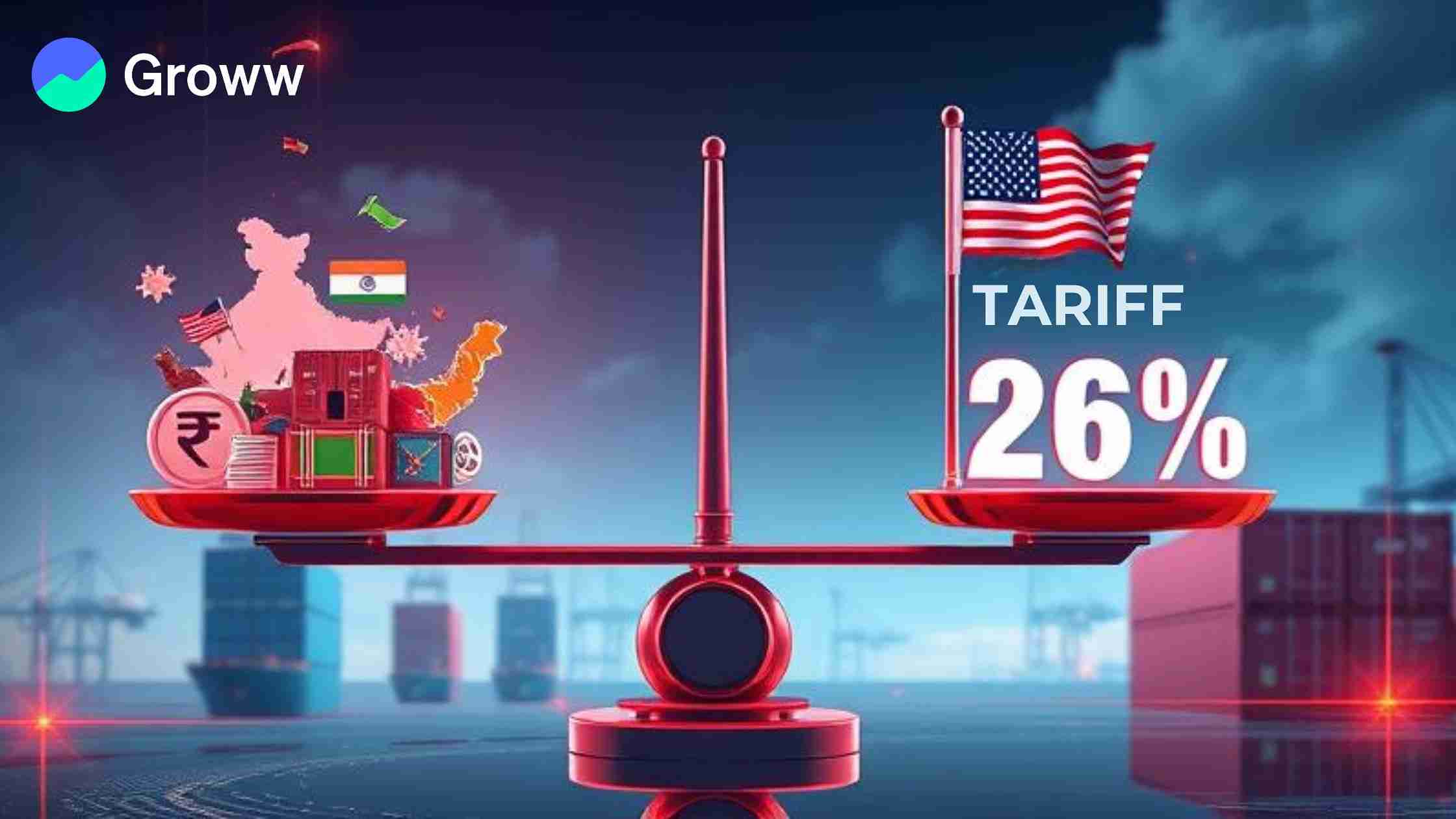Impact of Trump's 26% Tariff on Indian Imports: Key Affected Sectors

The Trump administration has imposed a blanket 26% tariff on imports from India, a decision that has led to significant market reactions and economic concerns. This tariff is higher than those imposed on the European Union (20%), Japan (24%), and South Korea (25%). While China faces a 54% tariff, India's inclusion in this steep tariff bracket is considered a significant setback for its trade relations with the US. President Trump announced these reciprocal tariffs affecting over 180 countries on April 2nd, without any country-specific exclusions, and also introduced a 10 percent baseline tariff. However, the reciprocal tariffs are set at half the rate other countries charge on US products. This announcement was dubbed ‘Liberation Day’.
Immediate Market Reaction
In the first trade session after the news broke overnight, there was a knee jerk reaction in the Indian market. The BSE Sensex dropped over 500 points while the Nifty50 declined below 23,200 within the first 15 minutes of trade. Gift Nifty’s 1.5 per cent fall also showed this muzzling of immediate negative reaction. The rupee also fell against the dollar, hovering around 85.69 amid the market volatility. In general, Trump’s tariffs can cause an instant reaction on the Indian bourses.
Sectoral Impact: Pharmaceuticals
The pharmaceutical sector, contributing about $12.2 billion and which is part of Indian exports to the US, has escaped immediate tariffs - a relief possibly for major Indian pharmaceutical companies with the US remaining an important market. Brokerage firms such as ”Bernstein” noted in recent upgrades that the healthcare sector is one of the top groups with limited exposure to the negative impact of these tariffs and placed it at equal-weight. Pharma stocks are poised to recover as they had already factored in a 10% tariff, CLSA said. Jefferies sees little in the way of near-term impact but adds they won't rule out additional, broader tariffs, which could lead to a rally in US-based generic pharma stocks. While it has the current exemption, analysts are cautious of any future revisions on tariffs. Top companies by US revenue exposure as a percentage of FY25 total revenues are Syngene (68 per cent), Gland pharma (54 per cent), Biocon (50 per cent), Zydus Life (45 per cent), Dr. Reddy's (43 per cent), Piramal pharma (41 per cent), Lupin (35 per cent), Sun pharma (30 percent), Cipla (28 per cent) and Alkem (20 percent). Nifty Pharma increased by 2.73% after the announcement.
Impact On the Sector: Auto Industry
The automotive industry that contributes around 3% of India’s overall exports to the US, will likely face headwinds. “A blanket tariff of 26% is expected to impact demand and also the competitiveness of Indian automobile exports in the American market, which can have a cascading effect in terms of higher production costs, lay offs and supply chain challenges”, Macquarie said. Stocks of automakers like Tata Motors and Samvardhana Motherson may be impacted. Shares of top US and Asian auto makers also fell after the announcement. And the impact of the same could be felt on Nifty Auto which was down -0.64%.
Impact By Sectors: IT and Services
Nifty IT tumbles by over 3% after Trump’s reciprocal tariffs as fears of a recession and cut down on discretionary spending looms large. The IT sector under coverage has also been downgraded by analysts to equal-weight on the basis of increasing US recession risks.
Sectoral Implications: Manufacturing and General Exports
Exporters outside of pharmaceuticals and automobiles will face challenges under the 26% tariff structure that could hurt export competitiveness and slow growth, with Macquarie estimating a 50 basis point hit on GDP. Industries with substantial exposure to the US markets may be hit harder. Higher import tariffs will hit US-centric businesses in segments like iron and steel and electronics hardware. India’s other top exported items to US are machinery (15.6%), gems and jewellery (11.5%), machinery for nuclear reactors (8.1%), and refined petroleum products (5.5%).
Strategic Implications and Possible Reactions
India is in talks for a bilateral trade agreement with the US for this very reason to minimise the influence of these quotas, and if they are successful, it could ease trade tensions and competitiveness. Various strategies, including cost pass-through, market diversification or loss absorption, are likely to be explored by businesses while they still have an international foothold in the US market. But experts say that the 26% tariff on Indian products is not exorbitant compared to tariffs imposed on other nations, and allows room for negotiating instead of retaliating. But generally, US protectionist measures are bad for the Indian stock market, increasing global risk aversion, leading FPIs to cut exposure to emerging markets and creating volatility. A risk-off sentiment could also pressure the rupee, with consequences on imported inflation and foreign debt companies. India’s exports in the most vulnerable sectors amount to only 1.1 per cent of India’s GDP, and India's trade surplus with the US is not significantly large, experts point out, so Trump’s tariff is unlikely to have a major negative impact on the overall Indian economy.
Disclaimer: This news is solely for educational purposes. The securities/investments quoted here are not recommendatory.
To read the RA disclaimer, please click here